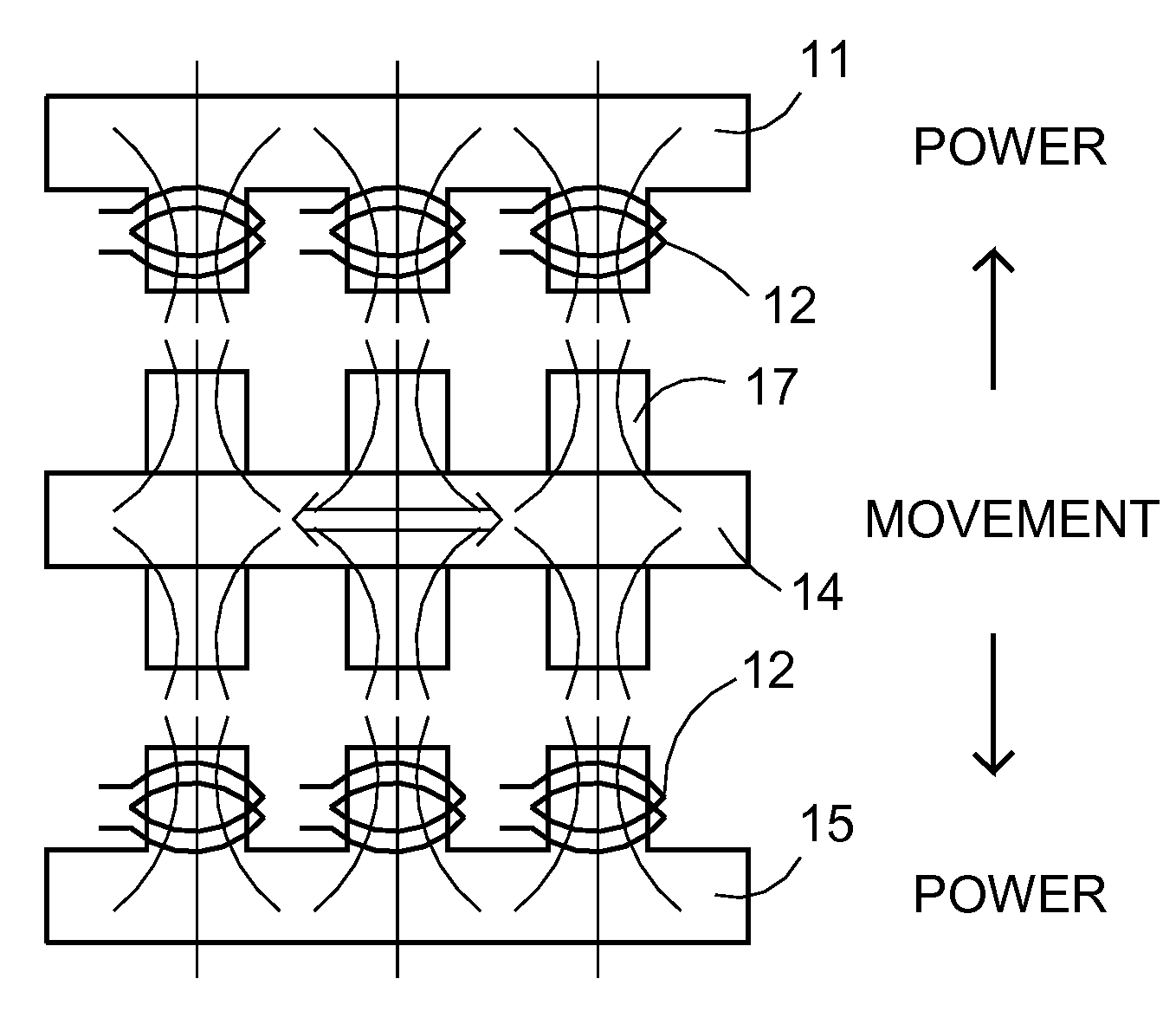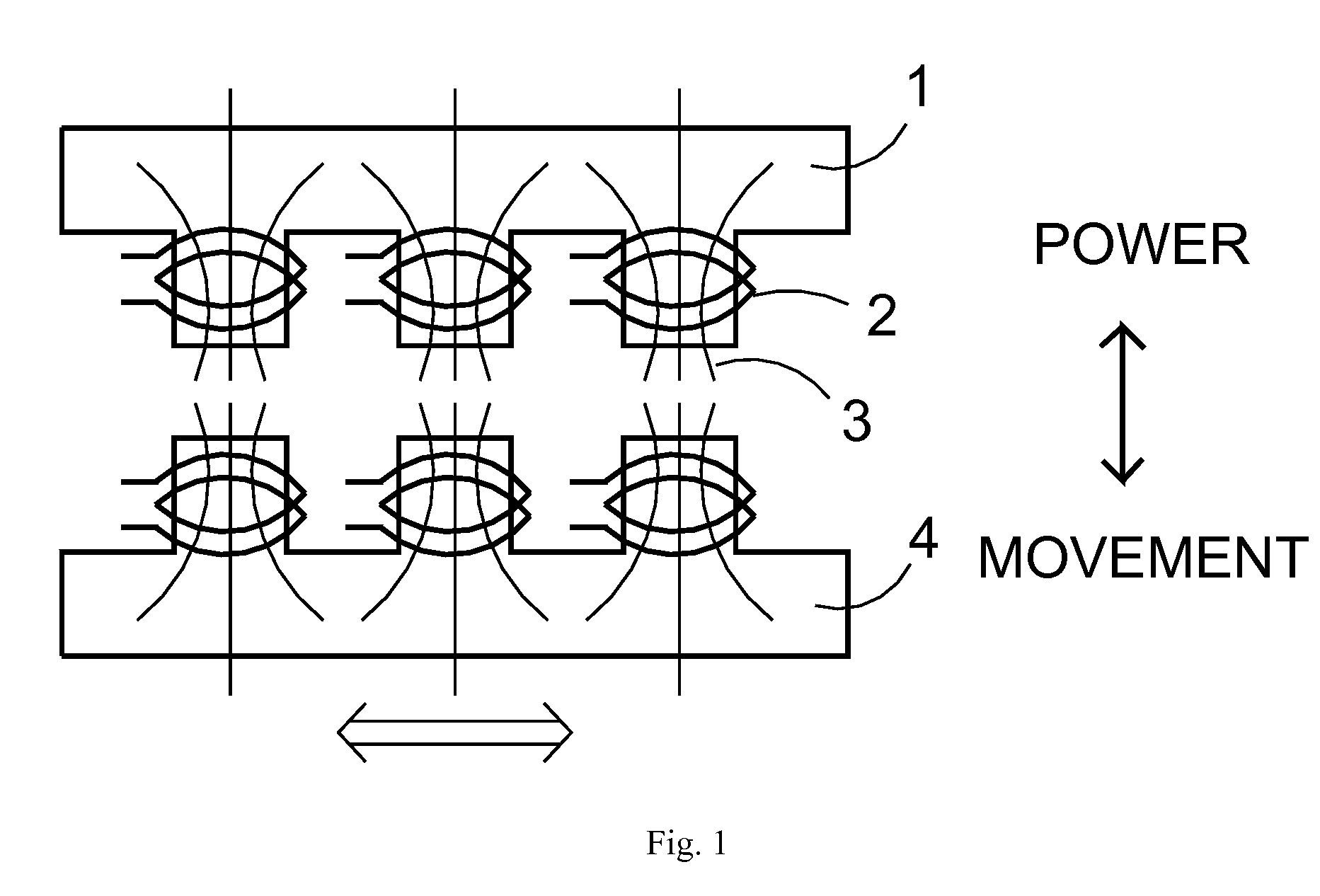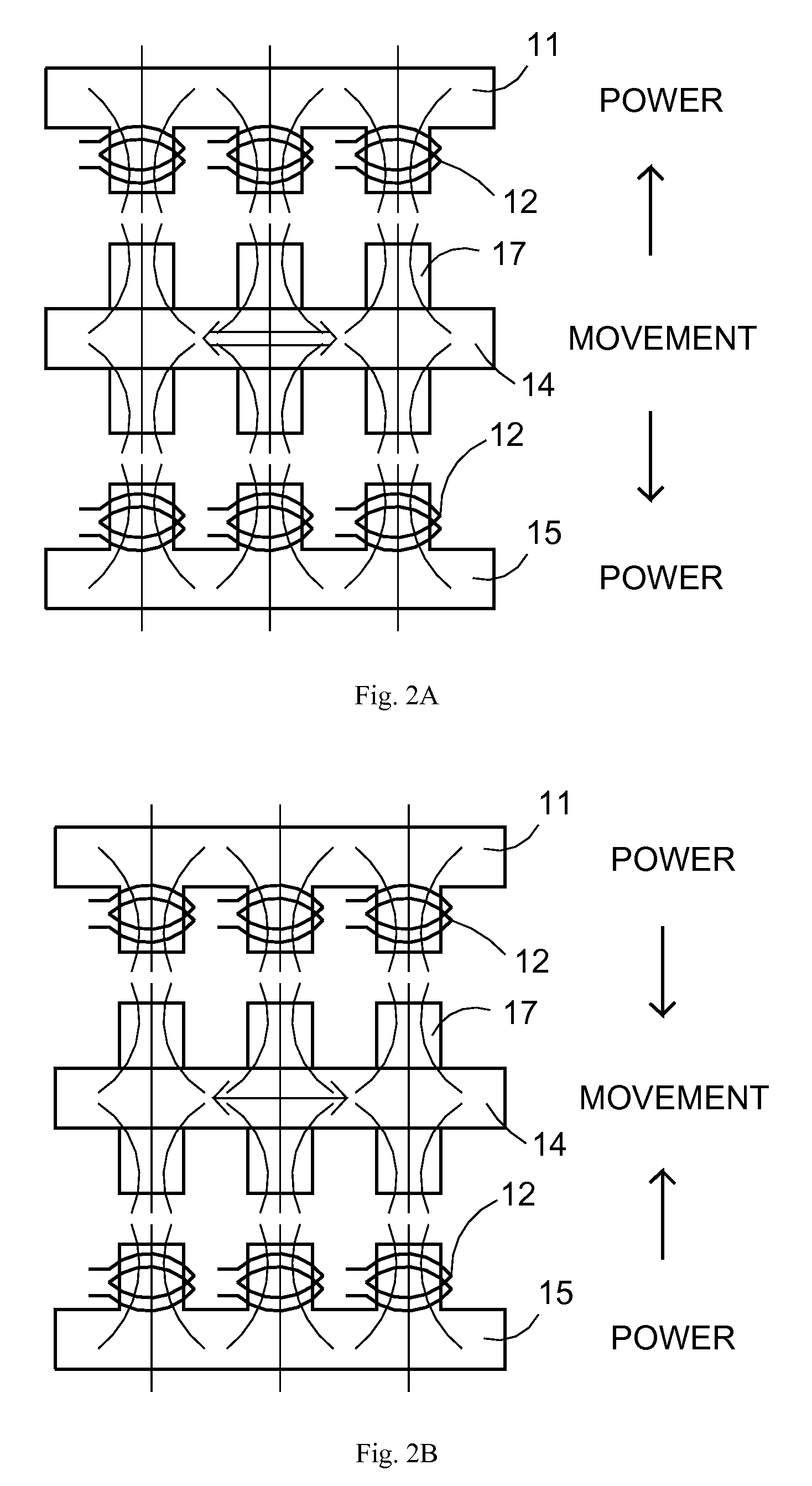Composite electromechanical machines with controller
a technology of electromechanical machines and controllers, applied in the direction of dynamo-electric converter control, motor/generator/converter stopper, multiple dynamo-motor starters, etc., to achieve the effect of reducing power, high power, and speeding up the reduction of power or speed
- Summary
- Abstract
- Description
- Claims
- Application Information
AI Technical Summary
Benefits of technology
Problems solved by technology
Method used
Image
Examples
Embodiment Construction
[0025]Embodiments of the invention include a composite motor or generator which comprises multiple rotor / stator pairs that are configured as a double-sided stator and / or double-sided rotor and a controller for configuring at least a winding of a rotor / stator pair or for configuring or changing the functionality or characteristics of the rotor / stator pairs.
[0026]FIG. 1 illustrates the interaction of magnetic field(s) in a motor or generator. A power can be applied to a magnetic plane 1, for example, through the windings 2, to generate a magnetic field 3. Interaction of the magnetic field 3 with another magnetic plane 4 can provide a movement for this magnetic plane 4. Conversely, movement of the magnetic plane 4 can generate power within the windings 2 of the magnetic plane 1. In this configuration, certain magnetic field is directed away from the interaction, and thus does not contribute to the power transfer
[0027]FIG. 2A illustrates a schematic for a generator using a double-sided ...
PUM
 Login to View More
Login to View More Abstract
Description
Claims
Application Information
 Login to View More
Login to View More - R&D
- Intellectual Property
- Life Sciences
- Materials
- Tech Scout
- Unparalleled Data Quality
- Higher Quality Content
- 60% Fewer Hallucinations
Browse by: Latest US Patents, China's latest patents, Technical Efficacy Thesaurus, Application Domain, Technology Topic, Popular Technical Reports.
© 2025 PatSnap. All rights reserved.Legal|Privacy policy|Modern Slavery Act Transparency Statement|Sitemap|About US| Contact US: help@patsnap.com



